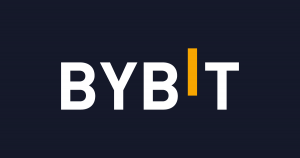UK Treasury Committee seeks explanation from Visa over latest system failure
The Chair of the Treasury Committee has written to Charlotte Hogg, CEO (Europe) of Visa, to find out what went wrong.

After the nightmare experienced by Visa cardholders in Europe last Friday, the company faces questions. UK politicians have already reacted – this is not a random occurrence, given that the UK was one of the countries where Visa cardholders appear to have been most affected. Many of the complaints on Visa’s Twitter account came from disgruntled Brits.
Rt Hon. Nicky Morgan MP, Chair of the Treasury Committee, has written to Charlotte Hogg, Chief Executive Officer (Europe) of Visa, to find out what went wrong, how Visa will ensure that a similar failure does not happen again, and whether customers or merchants will be entitled to compensation from Visa.
You can view an excerpt of the letter below:
“I am writing following Visa’s system failure on Friday 1 June. As you know, the incident left many cardholders unable to complete transactions, leading to· widespread inconvenience for consumers and merchants. I would be grateful if you could provide answers to the following questions on the disruption, by 5pm on Friday 15 June.
- When did Visa first become aware of the failure, and when were you personally informed of it?
- For how long were you aware of the system failure before issuing your first public statement on the incident?
- How many Visa cards were affected by the system failure, and how many of those were issued in the UK?
- What determined whether or not a given Visa card was affected?
- You have stated that the incident was caused by a hardware failure. What led to this hardware failure, and what controls do you have in place to prevent such failures from occurring?
- Some merchants were left unable to accept any card payments, even those taking place over an alternative card network (e.g. MasterCard). Why did a Visa system failure prevent some non-Visa transactions from taking place?
- Does Visa operate a backup processing site? If so, why was processing not switched to this site to ensure service continuity?
- Have any cardholders seen money leave their accounts for transactions that were not, in fact, completed?
- Will any cardholders or merchants be entitled to compensation from Visa?
- What steps will you be taking to ensure a similar system failure does not happen again?”
The Committee has asked Ms Hogg to answer its questions on the disruption. If it is not satisfied with the response, the Committee may consider asking Ms Hogg to provide oral evidence.
The first reports about the problems emerged on Friday afternoon in Europe, as Visa card transactions did not work for those trying to pay online or via POS. Those trying to pay via contactless cards had most problems, whereas ATMs quickly ran out of cash and queues formed at banks. Irate passengers could not catch their planes and taxis, nor the subway train to get home. The rush hour became a nightmare for many, especially in the UK, France, Germany and Italy.
The Twitter account of Visa Europe was flooded with angry comments by disgruntled cardholders. The lack of updates for more than 6 hours was one of the reasons for the rightful discontent of those affected.
Around 10pm BST, the company finally published a long-awaited update stating that the issue was a result of a hardware failure and not a cyber attack.
On Saturday, June 2, 2018, Visa said the issues had been resolved. However, some customers reported they were still experiencing problems. Many said they were charged several times for the same purchase, with no directions on how to seek compensation/redress.









